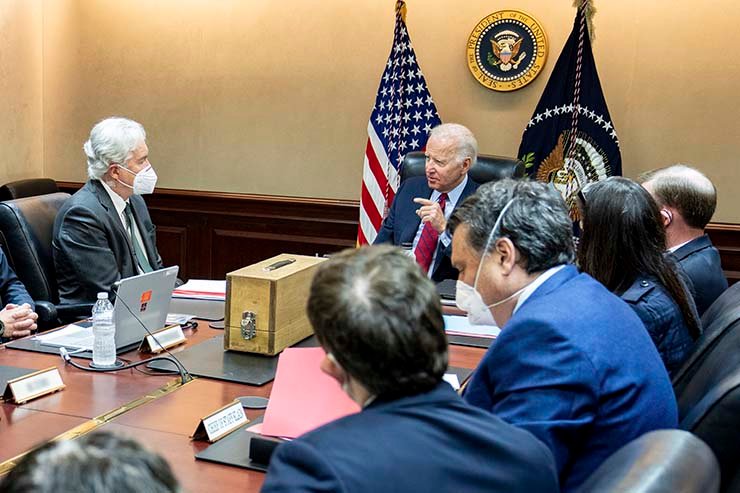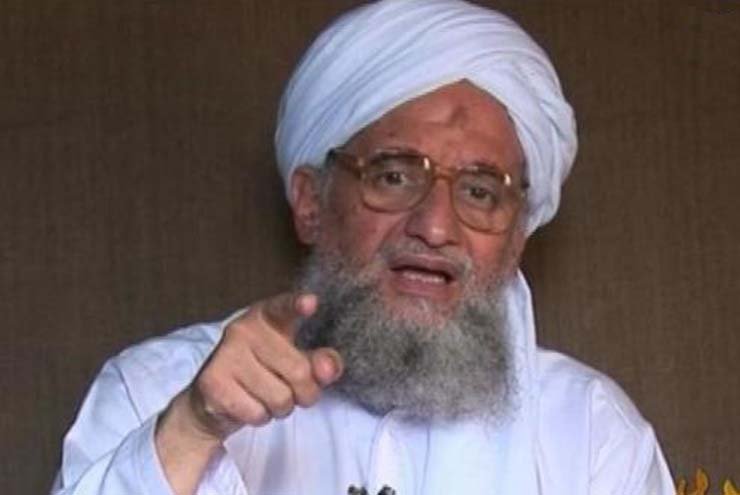
The United States of America recently carried out a precision drone strike which killed the leader of the dreaded terror organisation Al-Qaeda’s Emir Ayman Al Zawahiri. This is considered as one of the biggest successes of America’s counterterrorism strategy since the elimination of Abu Bakr Al Baghdadi in a special military operation in Syria in 2019. However, while the elimination of Zawahiri has been a shot in the arm for US and global counterterrorism actions, it undoubtedly exposes the new Afghan regime i.e. the Taliban’s false promises of fighting against terrorism.
Afghanistan has once again become the epicentre of global terrorism with the Taliban aiding and encouraging terror groups. In a matter of sheer irony, one of the ruling factions of Taliban is the dreaded Haqqani network headed by its Emir and the current ‘interior minister’ of Afghanistan Sirajuddin Haqqani who is a UN designated global terrorist. What is more concerning is that the presence of Al Zawahiri on the Afghan soil and that in a posh area highlights how Afghanistan is once again becoming a serious security threat to its neighbours.
New Taliban – old wine in new bottle
The Taliban which stormed to power in 2021 pledged under the aegis of the Doha Accord of February 29, 2020 that it will not allow Afghanistan to be used as a launching pad for terrorists and that it is committed to the vision of the new democratic Afghanistan. It also promised to promote women’s education and protect their rights and liberties. It perhaps appeared that the world was living in a fool’s paradise. One of the very first things the Taliban did was to ban education for girls; they can study only up to class 6, the repressive ministry of vice – responsible for the enforcement of the Shariat as well as regulator of morality – is very much in power. They also launched a crackdown on dissidents, killing or incarcerating dozens of human rights activists, journalists, soldiers, parliamentarians and anybody who were American ‘informers’.
The fact that the top echelons of the regime deny the knowledge of Al Zawahiri’s presence in the country exposes their double standards on fighting terrorism. What is more concerning is that the Taliban has continued to maintain their clandestine contacts with terror organisations; notables include Lashkar-e-Taiba, Haqqani network, Tehreek-e-Taliban (TTP) or the Pakistani Taliban. In fact, the Afghan Taliban is playing the role of a mediator between the Pakistani government and the Pakistani Taliban. Also, the Taliban is unable just like last time it was in power in 1996 to steer the economy as its so-called ministers are neither technology-savvy nor properly educated. They are unable to chart out a future sustainable course for a country which is not only in the grip of a severe economic crisis but almost on the verge of a famine as millions of children continue to suffer from malnutrition and there is not much food to eat in the country.

India – reacting with caution
The drone strike that killed Zawahiri has no doubt sparked concerns in India about the Taliban’s close connections with terror groups. There is also a vast possibility of the ISI using foreign fighters with the help of Taliban to infiltrate into Kashmir valley and do a rerun of the 1990s insurgency. Therefore, India needs to tread with extreme caution.
New Delhi has announced the limited opening of its embassy in Kabul with a mid-level Indian Foreign Service officer functioning as the head, but this event has caused the mandarins of South Block to rethink their actions. While India quickly sent aid in the form of relief materials and wheat to Afghanistan, it hasn’t yet given a formal recognition to the Taliban regime.
Taliban has continued to maintain their clandestine contacts with terror organisations, notables include Lashkar-e-Taiba, Haqqani network, Tehreek-e-Taliban (TTP) or the Pakistani Taliban. In fact, the Afghan Taliban is playing the role of a mediator between the Pakistani government and the Pakistani Taliban
What India can do is to always send relief aid and materials not directly but under the aegis of United Nations and other relief agencies like Doctors Without Borders, Red Cross etc. Further, India should focus only on the economic agenda with the Taliban, no political discussions for now. It should ask the Taliban to strictly ensure protection and round-the-clock surveillance of its assets in Afghanistan.
Further, India must continue without any further delay the granting of visas to ordinary Afghans who are in dire need of it. New Delhi stopped issuing visas to Afghans which was regarded as a setback in New Delhi’s foreign policy objectives in Afghanistan and dented its image among the common masses of Afghanistan.
Summing up
The objective of India should be to regain the lost ground in Afghanistan before it competes with China in the country known popularly as the graveyard of empires. With careful thinking and keeping its national interests in mind, India can emerge as an influential stakeholder in Afghanistan once again.
– The writer is currently working as a Research Associate at Defence Research and Studies (dras.in) and is a columnist. The views expressed are personal and do not necessarily reflect the views of Raksha Anirveda















